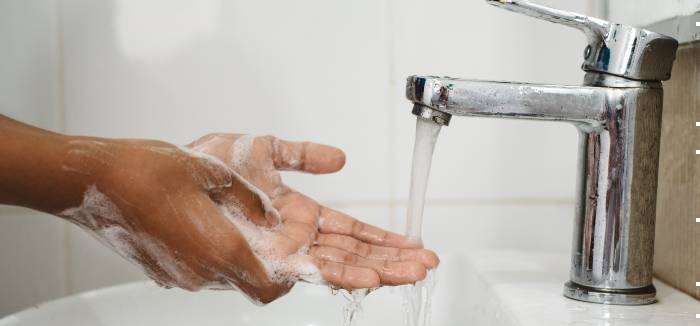
As part of ongoing efforts to curb healthcare-associated infections and strengthen public health systems, infection prevention and control (IPC) stakeholders and government officials have renewed calls for the institutionalisation of hand hygiene.
They emphasised the need for it to be woven into the fabric of daily life, transforming it into a national culture rather than just a symbolic event observed once a year.
The call was made on Monday during the commemoration of World Hand Hygiene Day 2025, held at Maitama District Hospital in Abuja. The event, themed “It Might Be Gloves. It’s Always Hand Hygiene”, was organized by the Nigeria Centre for Disease Control and Prevention (NCDC) in collaboration with the Maitama District Hospital.
Lead of the IPC Programme at APIN Public Health Initiatives, Dr. Abiodun Issa highlighted that approximately 70 per cent of infections are transmitted through hands, underscoring the urgent need for proper hand hygiene practices at every level of society. “It’s only logical to improve our habits and stop the spread of infections through proper hand hygiene, not just in health facilities but in homes and communities,” Issa emphasised.
He further warned against the misuse of medical gloves, which, when improperly handled, can become vectors for infection and environmental hazards. “Medical gloves can take up to 10 years to degrade. Their misuse contributes significantly to global warming,” he noted, stressing the need to adopt safer and more sustainable infection prevention measures.
Mandate secretary for health services and environment at the Federal Capital Territory Administration (FCTA), Dr. Adedolapo Fasawe called for hand hygiene to become a continuous, ingrained practice and not be relegated to a once-a-year event. She emphasised that regular, unannounced audits, along with structured training programs, are key to fostering a culture of safety within health systems. “Leadership support and recognition of champions in this area are crucial to sustaining the progress we’ve made,” Fasawe stated.
Head of Nursing at Maitama District Hospital, Hannatu Isaiq reinforced the value of investing in IPC as a cost-saving strategy. “It protects patients, reduces healthcare expenses and empowers healthcare workers to become agents of positive change,” she said.
Assistant chief geologist with the WASH Response and Collaboration Unit at the Federal Ministry of Water Resources, Ebofin Olusoji Charles called hand hygiene “the simplest, most effective tool for disease prevention and public health protection.” He warned of the rapid spread of infections in the absence of personal responsibility and sustained collaboration: “In no time, an infection can spread if we fail to act. That’s why personal responsibility and collaboration are essential.”
Antimicrobial resistance & IPC programme officer at the Dr. Ameyo Stella Adadevoh Health Trust (DRASA), Oluwatoni Akinola echoed the sentiment, saying, “Hand hygiene is a powerful, life-saving practice that must become second nature. It saves lives, builds trust, cuts costs and strengthens our health system.”
IPC programme lead at the African Field Epidemiology Network (AFRENET), Dr. Aisha Farouq emphasised the importance of strategic partnerships in enhancing IPC efforts. “Hand hygiene is a cornerstone of healthcare. Our collaboration with NCDC is not only saving lives but also promoting peace, health, and national growth,” she said.
Head of the IPC programme at the Institute of Human Virology Nigeria (IHVN), Chidinma Ibe also stressed the importance of sustained institutional support for hand hygiene practices. “Hand hygiene is fundamental to infection prevention. Our longstanding partnership with Maitama District Hospital is crucial for building capacity, strengthening IPC practices, and providing the necessary resources,” she stated.
The consensus among stakeholders was clear: embedding hand hygiene into daily practices, supported by strong leadership, training and collaboration, is vital to protecting health systems, reducing environmental harm, and preventing future disease outbreaks.
World Hand Hygiene Day, marked annually by the World Health Organisation (WHO) on May 5, serves to raise global awareness about the importance of clean hands in preventing infections and protecting healthcare delivery systems.
The event concluded with a collective call to action for all healthcare stakeholders to reaffirm their commitment to hand hygiene as a life-saving practice that must never be overlooked, regardless of gloves or other protective equipment used.

